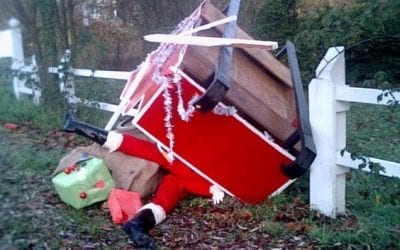Enforcement actions in the construction industry for inadequate height protection have risen nearly 500% in the past three years, but prosecutions have fallen 90%.* This is largely due to the “falls from height” campaign and more proactive action by inspectors. Unfortunately, construction is still in the top five for workplace fatalities in New Zealand.
The vast majority of builders we deal with recognise the importance of good health & safety practices. However, most also subscribe to one or more of the following views:
- Regulation is over the top
- Compliance costs are a heavy burden on a small business
- There’s no personal responsibility anymore
Whether you agree with it or not, the reality for everyone in the construction sector is that ensuring workplaces are safe is not negotiable. Unfortunately, despite the best intentions of employers, sometimes things happen. If an injury occurs and a WorkSafe NZ investigation determines that it could have been prevented, you could face a fine and/or prosecution. Under the current law, workplace bullying is also considered a hazard, and failure to prevent it could be a breach of the law.
New legislation has recently been introduced that is expected to replace the Health & Safety in Employment Act with the Health & Safety at Work Act later this year. Among other things, this will:
- increase penalties
- clarify that your responsibility is not just for your employees, but also for subcontractors, employees of subcontractors, hired labour, apprentices, workers on trial and volunteers.
- highlight that you’re also responsible for them wherever they go when they are at work, for example,if they need to drive down to the merchant to pick up some materials,
- put more onus and legal requirements on managers and company directors to manage risks and keep their workers safe
Although the law specifically states that you can’t insure against fines under health & safety legislation, you are able to get insurance for the legal costs of defending an action, and for reparation payments that may be awarded.
Statutory Liability Insurance
Known as statutory liability insurance, it provides protection for:
- the legal defence costs associated with breaches of most legislation, including the Building Act, Consumer Guarantees Act, Fair Trading Act, Resource Management Act, Health & Safety in Employment Act and others (but excluding criminal and tax statutes)
- The costs of an investigation or inquiry
- fines or penalties you may be required to pay under these acts (except for health & safety fines) in addition to legal and investigative costs
Examples of fines you may be exposed to include:
- Building without consent when required – maximum fine $200,000
- Complaint to the Building Practitioners Board – maximum fine $10,000
- Breaching the Resource Management Act – maximum fine $600,000 plus $10,000 per day
And new fines and penalties are regularly being introduced, such as:
- Building without a written contract when required – maximum fine still to be confirmed
- Failure to supply a pre-contract declaration – maximum fine still to be confirmed
As we become more regulated (and let’s face it, this is a one-way train) and as enforcement of this regulation increases, it’s worth thinking about having insurance to cover this risk.
*Otago Daily Times, OIA request to WorkSafe NZ




